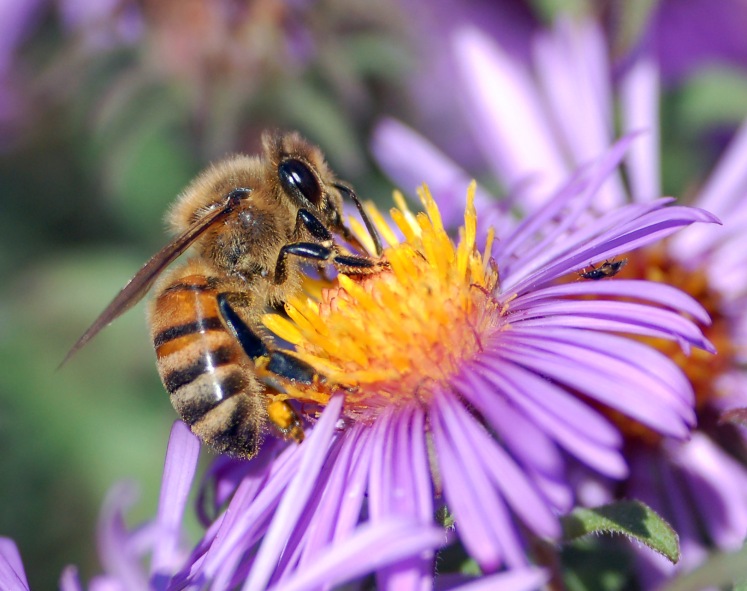Honeybees are under threat globally, in the Unites States their population has decreased significantly due to a condition called Colony Collapsed Disorder (a phenomenon in which worker bees disappear from a colony, leaving behind a queen, food, and a few nurse bees to take care of the queen). In Europe, researchers found up to 57 pesticides poisoning bees. Although several studies have shown links between pesticide use and bee deaths, it is not possible to just ban the pesticide that is killing the bees because the relationship between pesticide use and bee deaths is complex. There have been more than 70 poisoning bees. Even at low levels, pesticides can weaken a bee’s defense system, allowing parasites and viruses to eventually kill a whole colony. Recently, a team of researches have been using a method that detects pesticides in food to test poisoned bees and to be able to expand their knowledge and hopefully save the bees. 
- Comment
- Reblog
-
Subscribe
Subscribed
Already have a WordPress.com account? Log in now.
It honestly a shame that these adorable insects are dying off in such huge numbers. Yes, their stingers can be intimidating, but honey bees overall provide us with so much; they pollinate up to 90% of our food and provide us with honey and beeswax. I hope that either scientists find a way to protect the honeybees’ hives or formulate a type of pesticide that doesn’t affect bees.
LikeLike
This is both interesting and terrible. I knew that pesticides killed both intended and unintended targets, but I had no idea that it is affecting bee populations at this rate. The EPA should create stricter regulation on the use of pesticides as well as the application and allowable ingredients.
LikeLike
This article brings out the importance of how such a small organism can make such a large impact. The bee population and human population have more in common than people know, and should use that information to stop this dangerous use of pesticides.
LikeLike
This is a really interesting articles! Even though honeybees are such small creatures it really makes it known that we need them very much in order to survive.
LikeLike